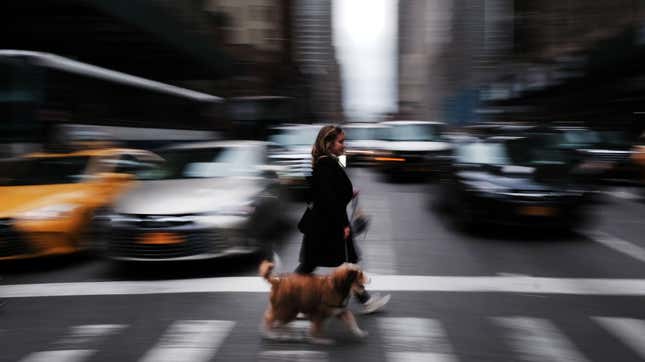
Urbanization has its ups and downs, which mostly have to do with how the environment affects our physical wellbeing. Big cities have the best food, but they have pollution in many forms, and it turns out noise pollution is dangerous beyond causing harm to our hearing.
Noise pollution from traffic is being linked to cardiovascular disease that can affect city-dwellers and people who live close to airports, as reported by the Atlantic. And even though damage from high sound-pressure levels was thought to do harm only after prolonged periods of time, that is no longer the case according to a study from the Annual Review of Public Health.

The Atlantic cites the 2020 study, which concludes that the body’s physical response to loud sounds affects the “endothelium, [or] the inner lining of arteries and blood vessels.” The lining becomes inflamed and this impairs blood vessel function, which can then lead to cardiovascular disease.
The report outlines the following:
Once initiated, this response releases hormones such as adrenaline and cortisol into the body. Some arteries constrict; others dilate. Blood pressure rises, and sugars and fats flood the bloodstream for quick use by the muscles. The cascading stress response also prompts the creation of harmful molecules that cause oxidative stress and inflammation in the lining of blood vessels. This dysfunctional endothelium meddles with blood flow and affects numerous other processes that, when impaired, contribute to a range of cardiovascular illnesses, including high blood pressure, plaque buildup in arteries, obesity, and diabetes.
While we are familiar with guarding against hearing loss by reducing exposure to sounds from, say, concerts or gunfire, people in big cities are in danger from the sound of traffic. Densely packed roads can easily exceed safe sound levels. Trucks can produce anywhere from 70 to 90 dB, and sirens can get louder than 120 dB.

And the report also made me think of how loud some car cabins are. Cars with crappy soundproofing can be tedious over long drives. Of course, some cars are worse than others in this regard. A convertible or a Jeep will be louder than a sedan or wagon. Tires can affect sound levels. Or things as mundane as the radio and climate controls.
And for those of you that ride, I don’t even to have to emphasize how loud being in the saddle is. A helmet will mitigate the noise but only under specific conditions (full-face helmet, visor down.) And people in cars or at home in cities are not going to wear helmets just to decrease sound exposure. Though just as an aside, one of my goals here is to normalize helmet wearing in cars.
A notable finding was just how quickly high sound pressure can affect us. One of the researchers said the following:
“We were surprised that young people, after hearing these sounds for just one night, had endothelial dysfunction,” says [Thomas] Münzel, coauthor of an overview on noise and cardiovascular health[.] “We always thought this was something that takes years to develop.”
Tinnitus is no joke, but high blood pressure, artery plaque buildup, obesity and diabetes are just the latest reasons to protect your hearing. And if you ride a motorcycle, consider a pair of ear plugs. Custom ear plugs are fancy, but they are worth the expense when you consider the risks.